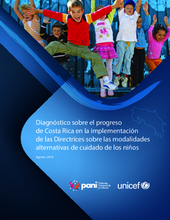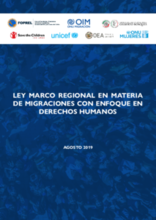This page contains documents and other resources related to children's care in the Americas. Browse resources by region, country, or category.
Displaying 1301 - 1310 of 3191
The Evaluation Summit is a forum for child welfare leaders, members of the research and evaluation community, and their partners and stakeholders to come together for timely and important dialogue and learning.
This study tested a web‐based parenting course called FosterParentCollege.com (FPC) Culturally Competent Parenting (CCP) for transracial foster and adoptive parents.
"Nearly 10 months after the Auditor General of Canada delivered a scathing rebuke of the Northwest Territories' child welfare system, the territorial government has released a new plan to improve it," says this article from CBC News.
The Seoul Central District Court has recently held a hearing in relation to "a landmark lawsuit filed by deported Korean American adoptee Adam Crapser against the Korean government and Holt Children’s Services," according to this article from the Korea Herald.
In this radio segment from NRP, the host follows up with a Guatemalan family who spent three months in detention in the US and have since returned to Guatemala, discussing the impacts that family separation has had on them one year later.
The purpose of this systematic review is to synthesize existing research on community- and home-based interventions designed to improve parenting and reduce risk of maltreatment for families with substance-exposed newborns (SENs), applying a program logic framework.
This study examined foster parent physical and mental health over time.
The current study examines past adverse experiences and current functioning of adolescent males in out-of-home care, relying on data from the Assessment and Action Record—second Canadian version for a representative sample of 508 12- to 17-year-olds in out-of-home care across the province of Ontario (Canada).
Este diagnóstico tiene análisis del progreso de Costa Rica en la implementación de las Directrices sobre las modalidades alternativas de cuidado de los niños.
El objeto que tiene la «Ley Marco Regional» es crear un marco jurídico y rector que contribuya a una migración segura, ordenada y regular, basada en el respeto, garantía y realización efectiva de los derechos humanos de las personas migrantes en todas las fases del proceso migratorio en el contexto de la migración, con especial atención a poblaciones en condiciones de vulnerabilidad, en la región de Centroamérica, la Cuenca del Caribe y México.



